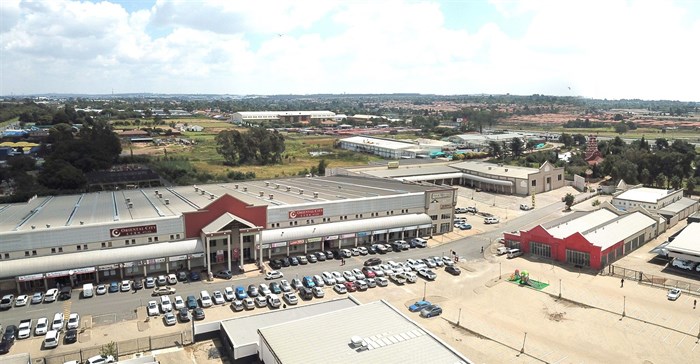
“The recent slump in numerous listed property shares, which have been trading well over their net asset value (NAV), is testament to the fact that momentum experienced can become somewhat ‘addictive’. As a result, while the investors were chasing the stock and driving the share price up, we tended to lose sight of the underlying true NAV of the investments.
“As many people recently lost money on selected property investments, the question investors must now ask themselves is whether to invest in direct property or not. The answer is simple and is in the affirmative, provided that you have a good management team in place, that you are paying nothing more than the true NAV of the bricks and mortar - and that you are not relying on conveniently overinflated rental income. Then direct property will prove to be what I believe is the soundest investment over time.
“Time is relative, but I would not recommend investing in direct property for anything less than three years. Also bear in mind that it is never as easy to exit as to acquire. By its very nature property is not that liquid and the initial upfront contagion acquisition costs need to be amortised over time.”
Raad points out that property has always been known to be a hedge against inflation. “The increase in VAT is expected to impact on inflation and consumer spending as everything becomes relatively more expensive. However, we have been given something of a reprieve with a slight decrease in the interest rate, and hopefully this will have a positive effect on property investors. With inflation, sellers may just decide to hold onto their assets or ask more for their investments, but in reality, currently buyers simply don’t have the appetite to pay anything more than market-related prices.”
Commenting on the various sectors of the property market, Raad says that shopping centres remain the most sought-after investments in the retail sector. “Rentals seem to be stable and increasing even though the retailers have taken a punch on the nose in the past few years.
“Sentiment is better this year, but the economic fundamentals don’t offer any reprieve at this early stage of our new leader at the helm of government. The positive signs are there, but our past just seems to keep holding us back from progressing and moving forward. Encouragingly, there seems to be a drive towards investment properties with good tenants, as the uncertainty in the market appears to have faded away. However, with the rand currency showing signs of strength, some investors are electing to invest offshore. Numerous listed REITS have a number of properties for sale, which has created an opportunity for investors sitting on cash.”
Raad says in Sandton and surrounding areas, commercial offices are still facing headwinds, with the total vacancy reaching over 250,000m2. There is a downward pressure on rentals making new developments seem unfeasible and too expensive. This will correct over time, but it is not going to occur in a struggling economy. In a tough economy, there is nothing keeping tenants in the space besides a good deal, so it would be prudent for landlords to retain a tenant at a reduced rental rather than lose them, especially as replacing a tenant also comes at an increased tenant installation cost contribution.
“Notably, the industrial landscape is changing dramatically, with older buildings becoming almost totally obsolete, as the market moves towards ‘big boxes’ suitable for logistics. In this tough economy, the investor or landlord needs to be creative and devise innovative ideas to unlock the value in their properties, as trends change and market faces challenges.”
Raad says today’s buyer by default also faces challenges when trying to raise finance through an institution. “It is not getting easier as the cashflow challenges are linked to the tougher economy. I anticipate a massive move to buying direct properties again and to selling vacant and non-core assets, and I believe the market could enjoy some serious activity going forward as it starts to correct itself, following a history of overvalued properties. The fact is realism is fast setting in regarding the valuing of assets. Obviously, this depends on the area and position of the property – for example, Cape Town still enjoys more demand than supply, even though there seems to be some softening in the residential development sector.”